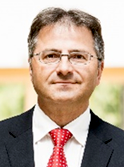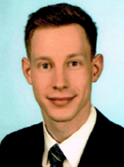Measurement of flow parameters in a Taylor-Couette configuration using UDV measurement technology
Abstract
In the context of the investigations of multiphase flows, e.g. in cooperation with the local brewery, the convective transport phenomena during the fermentation are investigated. Due to the strong turbidity of the medium, the measurement of velocity profiles is complicated. The difficulties of an investigation with a biological fermentation fluid are the many complex interactions between the different three phases (solid, gas, fluid). Furthermore, natural convection processes are superimposed by rising gas bubbles and the high turbidity of the fluid only allow an acoustic velocity measurement. In previous investigation, ultrasonic transducers are used for the non-contact determination of velocity fields in fluids. The results of these past projects show that the measurement signals of the ultrasonic transducers used can be influenced by many factors. In order to verify the results of the transducers and to investigate the existing uncertainties, a flow configuration with a relatively stable reproducible flow pattern is required. In this study, a calibration system for ultrasonic transducers is developed, manufactured and validated by means of optical measurement technology such as the LDA. Finally, a measurement using Ultrasonic Doppler Velocimetry in a model fluid will be compared with an optical measurement technique.
Downloads
Copyright (c) 2019 Heiko Meironke, Daniel Klembt

This work is licensed under a Creative Commons Attribution 4.0 International License.
Authors retain full copyright to their individual works.
The Journal of Mechanical and Energy Engineering (JMEE) publishes fully open access articles.
Open Access benefits:
- High visibility – all articles are made freely available online for everyone worldwide, immediately upon publication.
- Increased visibility and readership.
- Rapid publication.
- All articles are CC BY licensed. The final article can be reused and immediately deposited in any repository.
- Authors retain the copyright to their work.
By publishing with us, you retain the copyright of your work under the terms of a Creative Commons Attribution 4.0 International (CC BY) license.
The CC BY license permits unrestricted use, distribution and reproduction in any medium, provided appropriate credit is given to the original author(s) and the source, a link to the Creative Commons license is included, and it is indicated if any changes were made. This means that you can deposit the final version of your work in any digital repository immediately after publication.
We are committed to providing high-level peer review, author and production services, so you can trust in the quality and reliability of the work that we publish.




